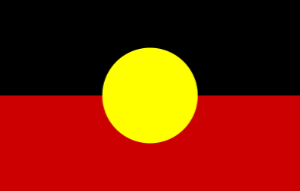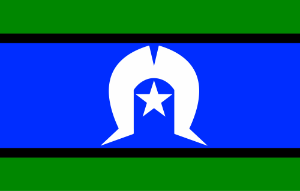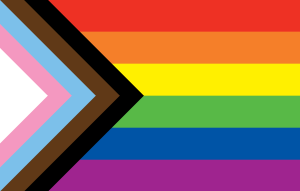New Year – 2022 Should Old Acquaintance Be Forgot…
By the time you get to read these words the new year will be well under way.
Conventional wisdom advises us to look forward, not backwards, especially at the dawning of a new year, and many of us comply by making lists of impressive resolutions. I wonder how many we actually keep? Few I suspect, but that’s possibly because they were unrealistic in the first place.
This year, as we enter our third year of living with a pandemic, the future doesn’t seem as easy to imagine as it may have been in other years. Yet, many of us long for the kind of expansive thinking that generates hope as a new year begins. Perhaps, by looking backwards for a change, we might find some of the depth and breadth that seem to be missing in our lives at the moment.
Hindsight, as potentially valuable as forward thinking, might help us discover hidden treasures from our past that might be currently hidden under layers of living.
How do we find the symbolic gold from our past? We need to ask ourselves important questions and stay still long enough to find the answers. For example, we might ask “who am I? How would I describe myself using six to ten adjectives?”
If we put those adjectives on paper and look at them for a while, we could then ask “how did I get to be this person? Who and what has shaped all that I am, from birth to now?”
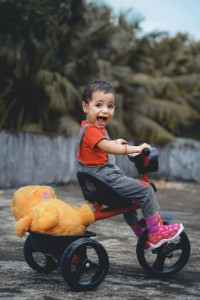 When we’re very young it’s easy to think that who and what we are is all our own work. I remember all the times I’ve watched a small child do something that impressed me and asking them “who taught you how to do that?” The answer was usually “no one, I taught myself”. I’ve later learned about the patient teaching that was involved in all those wonderful achievements. Perhaps many of us hang on to that youthful illusion that our good qualities and life achievements are ‘all our own work’, while our failures and faults are caused by others.
When we’re very young it’s easy to think that who and what we are is all our own work. I remember all the times I’ve watched a small child do something that impressed me and asking them “who taught you how to do that?” The answer was usually “no one, I taught myself”. I’ve later learned about the patient teaching that was involved in all those wonderful achievements. Perhaps many of us hang on to that youthful illusion that our good qualities and life achievements are ‘all our own work’, while our failures and faults are caused by others.
Let’s think about ourselves for a moment with the hindsight of life experience and maturity. Who and what really deserves the credit, or blame, for who we are now? It’s probably fairly easy to acknowledge the impact of current partners, children, grandchildren, friends and colleagues, and of recent life events, but what awareness do we have of the influence of ‘old acquaintance’ as the song goes?
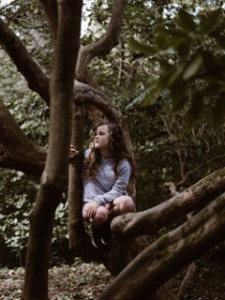 Having explored my family tree with great interest, I realize that some of the adjectives I used to describe myself are the result of the mix I inherited from the family gene pool. Others are the result of events, both happy and sad, and many are from the impact of interactions with others. Family, friends, colleagues, teachers and neighbors come to mind immediately, but I also remember the unexpected impact strangers have had on me. Add to that the zillion books I have read in my lifetime.
Having explored my family tree with great interest, I realize that some of the adjectives I used to describe myself are the result of the mix I inherited from the family gene pool. Others are the result of events, both happy and sad, and many are from the impact of interactions with others. Family, friends, colleagues, teachers and neighbors come to mind immediately, but I also remember the unexpected impact strangers have had on me. Add to that the zillion books I have read in my lifetime.
If we shine the symbolic torch of insight back along our timeline until our first memory, then move slowly forwards until 2022, we are likely to encounter a cast of thousands who have affected the person we are now. The simplest experiences, conversational exchanges, activities, and deeds can leave a lasting imprint that changes what becomes foreground and what moves to background in our lives and in our being.
I think of relatives first – great grandparents, grandparents, parents, siblings, aunts, uncles, and cousins who give my family breadth and depth. I think with fondness of those who were a touch eccentric and whose mannerisms fascinated me as a child. I have always loved difference, and as my thoughts go back in time I realize that many of the wonderful ‘remember when…’ sessions I’ve shared with my sisters and other family members have been embroidered with tales of our more colorful relatives.
In-laws and former relatives have also left their imprints on my heart, and in my memories. Not all warm and fuzzy of course, but many are, and I value everything they have added to my life.
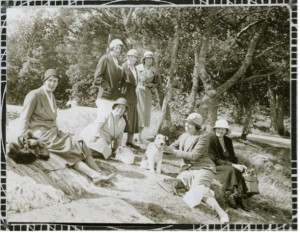
My thoughts then drift again to all the friends, living and dead, woven into the tapestry of my life, from kindergarten onwards. A few haven’t lasted the distance, some have disappointed, many have died, some caused hurt, but most have been like precious jewels leaving memories for me to relive over and over. The nature of my work has enabled me to travel and to make friends in many countries, their cultural differences adding to the richness of our connection. I miss their physical presence but appreciate the technology that allows us to communicate whenever needed.
Looking backwards will of course allow painful memories to resurface along with those that glow in the dark. Most of us will remember youthful crushes, first and later love affairs, and the pain of heartbreak. How have those experiences shaped us and affected the way we now relate to others? Did we become more discerning as a result? Did early hurts increase our ability to risk loving deeply, or have we focused more on building a safety fence around our heart so that no one ever gets too close?
Grief can have that effect.
If we experience bereavement very early in life, the painful space left behind can influence extreme reactions. We may become so needy that our life goal is to find someone to fill the emptiness. In the process, we almost inevitably fulfill our fear that no one ever will. True of course, because no one person can do that, and because extreme neediness makes others afraid of failing to live up to expectations. We may unconsciously push them away when they are most needed.
 Alternatively, we may convince ourselves that if anyone gets too close to us they will die and leave us, just as we were left in childhood. In a futile attempt to avoid hurt, we may erect a symbolic fence around ourselves as a challenge or a protection, like the moat around a castle. If it’s a challenge, we will consciously or unconsciously tell ourselves that the right person will find a way through our defenses. Someone might, but it’s a big risk, and many will weary from the effort. If it’s a wall of protection, we may retract the drawbridge when the most caring soul approaches and happiness is within reach. We avoid the risk of experiencing joy and choose pain instead – a familiar and predictable companion.
Alternatively, we may convince ourselves that if anyone gets too close to us they will die and leave us, just as we were left in childhood. In a futile attempt to avoid hurt, we may erect a symbolic fence around ourselves as a challenge or a protection, like the moat around a castle. If it’s a challenge, we will consciously or unconsciously tell ourselves that the right person will find a way through our defenses. Someone might, but it’s a big risk, and many will weary from the effort. If it’s a wall of protection, we may retract the drawbridge when the most caring soul approaches and happiness is within reach. We avoid the risk of experiencing joy and choose pain instead – a familiar and predictable companion.
 My challenge for all of us for 2022 is this: let’s put pride, or fear of emotional pain aside, and focus on the helpful things that the cast of thousands as I described them earlier may have contributed to all that we have become. We may bear the scars of grief, the disappointment from failure to achieve all of our goals, and the abrasions from hurtful deeds or comments, but we’ve survived. We’ve lived to face another day!
My challenge for all of us for 2022 is this: let’s put pride, or fear of emotional pain aside, and focus on the helpful things that the cast of thousands as I described them earlier may have contributed to all that we have become. We may bear the scars of grief, the disappointment from failure to achieve all of our goals, and the abrasions from hurtful deeds or comments, but we’ve survived. We’ve lived to face another day!
Let’s wear our scars as if they were badges of honor and be thankful that life experience has honed our resilience, our ability to adapt to challenges creatively. A lot of work has gone into making us who we are. It would be a shame to let it be in vain. ‘Lest old acquaintance be forgot…’
If you are bereaved and need help to ‘sift the wheat from the chaff’, to build an emotionally sustaining bridge into the future with links from the past, contact ‘A Friends’ Place’.
Help
Help is always available at the National Centre for Childhood Grief or by contacting our outreach service.
Dianne McKissock OAM
NCCG Outreach Support Service
Email support for dying and bereaved people and anyone involved in their car
